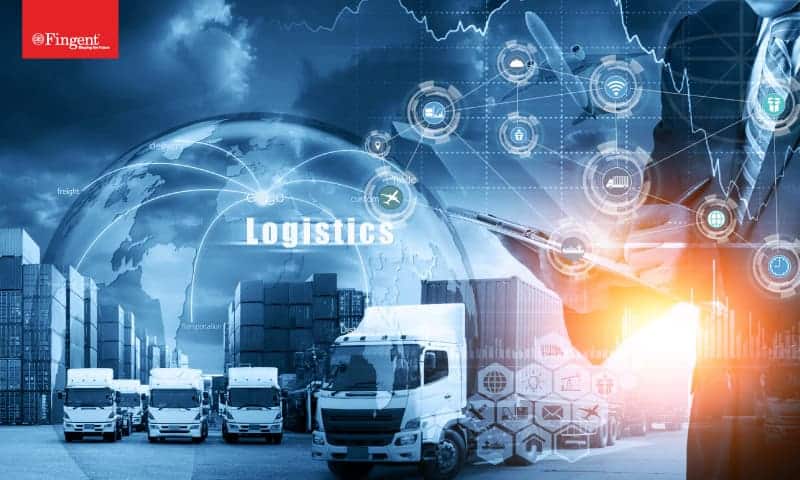How Robotics in Logistics Helps Improve Supply Chain Efficiency
Robotics in Logistics: Dawn of a New Era
Since the advent of e-commerce, getting goods to the customer’s door or stores from the factories or warehouses has become a mammoth task for logistics companies. Forecasts say that “worldwide warehousing and logistics robot unit shipments will increase to an estimated 620,000 units annually by 2021.” The solution for this herculean task of transporting goods far and wide thus becomes apparent: the dawn of robotics in logistics. The use of robotics in logistics offers far greater levels of uptime over manual labor, bolstering productivity in a vast array of professional environments.
Retail giants like Amazon and Walmart that have already deployed robots in their warehouses and fulfillment centers will only expand their deployments, especially in the wake of current situations. Leveraging robotics in logistics cuts around 70% of warehouse labor costs and helps businesses function day and night with minimal costs. Want to find out how? This post will help you understand the importance of utilizing warehouse robotics in the supply chain.
A Surge in Warehouse Robotics in Supply Chain
The first robot in the supply chain was capable of moving material about a dozen feet. For several years, robots were used only in industrial manufacturing because it was not safe for people to be around them. However, over the last few decades, innovative logistic robotic companies have worked hard to mesh AI and machine learning, better sensors and response capabilities, warehouse management software or logistics management software.
Recently, warehouse robotics in the supply chain has picked up pace exponentially. There has been huge funding and investment in the industry. For example, Alibaba invested $15 billion into robotic logistics infrastructure and Google invested $500 million into automated logistics for JD. It is also estimated that the global market for warehouse robotics in the supply chain is projected to reach a market value of $22.4 billion by the end of 2021.
Evidently, the dawn of robotic logistics is right here now!
Read More: How Robotic Process Automation Is Revolutionizing Industries?
What is Robotic Logistics?
The logistics industry is what is holding our modern world together. It includes a huge amount of different processes. Ordering, transportation, warehousing, picking, packing, delivery, inventory, and routing are just a few of those processes.
So, robotic logistics means the application of robotics to one or more of these processes. A few common robotic applications are robotic palletizing, robotic packaging, robotic picking commonly used in warehousing or any other logistics software solutions.
So, what kind of robots could be useful for your warehouse?
Warehouse Robotics in Supply Chain
1. Autonomous Mobile Robots (AMR)
AMRs use sophisticated sensor technology to deliver inventory all over the warehouse. They do not require a set track between locations. They can understand and interpret their environment through the use of maps, computers, and onboard sensors.
These warehouse robots are small and nimble with the ability to identify the information on each package and sort it with impeccable accuracy. They cut down on the redundant manual process which is prone to human error.
2. Aerial Drones
Aerial drones aid in optimizing warehouse inventory processes. They can quickly scan locations for automated inventory. They can scan inventory much faster than a human can and send an accurate count immediately to your warehouse inventory management software.
These drones do not need markers or lasers to guide them. They don’t take up valuable space in your warehouse. They can travel quickly and assist in hard-to-reach areas.
3. Automated Guided Vehicles
Automated guided vehicles and carts (AGVs and AGCs) transport inventory around your warehouse following a track laid in your warehouse. These warehouse robots are perfect for larger warehouses because it reduces the time spent by workers just moving from one area to the next.
4. Automated Storage and Retrieval System (AS and RS)
Automated Storage and Retrieval Systems are robot-aided systems that can place or retrieve loads from set storage locations. AS and RS differ depending on the system needed, the type of task, or the goods that they will be working with. They can be programmed to work as a craft that moves and works on a well-defined path or a crane that retrieves goods between aisles. There are also aisle climbing robots that retrieve customer orders.
These free up the time of workers who can then concentrate on more complicated processes such as packing and posting the goods.
Read more: What Are Cobots and How Can They Benefit Industries?
What is Driving the Need for Collaborative Robots in Logistics?
Although there has been a boom in logistic robotics, there are two specific factors that are driving the current need for collaborative robots in logistics.
- The growth of e-commerce: When products are directly shipped to customers, there is a huge variety of different packing requirements.
- The lack of available workforce: Shortage of skilled workers can affect logistics.
What are the Benefits of Adopting Robotic Logistics?
The logistics industry can see many tangible and clear benefits of adopting robotic logistics.
- By reducing human errors, robotic logistics can bring in significant profits and can also reduce warehouse costs.
- Robotics can allow for workforce adaptability.
- Robotic logistics improve safety for workers by taking over dangerous jobs such as getting items from high racks or storage spaces.
- Reduced human error and increased delivery speed brought about by robotic automation will increase customer satisfaction.
Read more: Open source robotics process automation
Enjoy the Freedom To Do More
Robots are being used rather extensively in logistics. Due to the complexity of supply chain processes robots will be increasingly used for dull, dirty, and dangerous tasks freeing your workers for more complex tasks. This means cost-effective, fast, and error-free operations. If you want this for your business, get in touch with us immediately and let us fix your business up with robot power.
Stay up to date on what's new

Recommended Posts

15 Apr 2025 Logistics
Cloud Based Logistics Platforms: The Key to More Intelligent & Faster Supply Chain
Can Cloud based Logistics Platforms help you? The logistics game is changing fast! The industry is under immense pressure to improve its efficiency and reduce costs. That is its one……

18 Apr 2024 B2B
Applied AI For Document Processing
"It's becoming increasingly clear that AI is the future, and almost everything else is a sideshow." - World-renowned computer scientist Geoff Hinton AI has taken over almost every aspect of……

25 Jan 2024 Logistics B2B
The Manifold Benefits of Custom Fleet Management Software in Supply Chain
Cost, Compliance, Efficiency, and Manpower – These are the pillars on which a fleet management business stands. A compromise on any of these can mean the whole business topples with……

10 Jan 2024 B2B
AI Trends Set to Transform Businesses in 2025
In the dynamic realm of modern business, the profound impact of artificial intelligence (AI) continues to unfold, reshaping industries and redefining conventional practices. As we step into 2025, the transformative……
Featured Blogs
Stay up to date on
what's new













